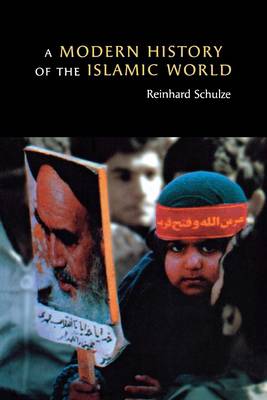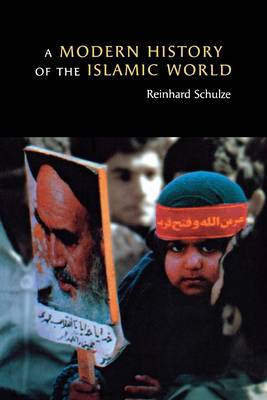
Vous voulez être sûr que vos cadeaux seront sous le sapin de Noël à temps? Nos magasins vous accueillent à bras ouverts. La plupart de nos magasins sont ouverts également les dimanches, vous pouvez vérifier les heures d'ouvertures sur notre site.
- Retrait gratuit dans votre magasin Club
- 7.000.000 titres dans notre catalogue
- Payer en toute sécurité
- Toujours un magasin près de chez vous
Vous voulez être sûr que vos cadeaux seront sous le sapin de Noël à temps? Nos magasins vous accueillent à bras ouverts. La plupart de nos magasins sont ouverts également les dimanches, vous pouvez vérifier les heures d'ouvertures sur notre site.
- Retrait gratuit dans votre magasin Club
- 7.000.0000 titres dans notre catalogue
- Payer en toute sécurité
- Toujours un magasin près de chez vous
Description
Chronologically charts the histories of societies in the Islamic World
The Islamic world--defined as those regions in which Islam is the dominant or single most important religion--covers territories as far apart as Morocco and Indonesia, Somalia, and Bosnia and includes an extraordinary range of societies and cultures. In A Modern History of the Islamic World, eminent scholar Reinhard Schulze charts the history of these societies in the twentieth century, revealing what they have in common as well as their equally profound differences. Rather than stringing together individual studies of different countries, the book is structured chronologically, tracing political change in the context of culture and society. Schulze opens with a survey of the impact of colonialism and its attendant modernizing effects on the Islamic world. He then moves on to examine the rise of bourgeois nationalism in the 1920s and 1930s, the era of independence movements, the relationship between Islamic cultures and the "republican" political culture of the Third World, the reassertion of Islamic ideologies in the 1970s and 1980s and, finally, the issues surrounding the relationship between Islamic culture and civil society that dominated debate in the 1990s. A Modern History of the Islamic World provides a clear overview of the ways in which twentieth century modernism affected the societies of the Islamic world and how modernism was developed from an Islamic perspective.Spécifications
Parties prenantes
- Auteur(s) :
- Editeur:
Contenu
- Nombre de pages :
- 450
- Langue:
- Anglais
Caractéristiques
- EAN:
- 9780814798195
- Date de parution :
- 01-03-02
- Format:
- Livre broché
- Format numérique:
- Trade paperback (VS)
- Dimensions :
- 155 mm x 229 mm
- Poids :
- 635 g







